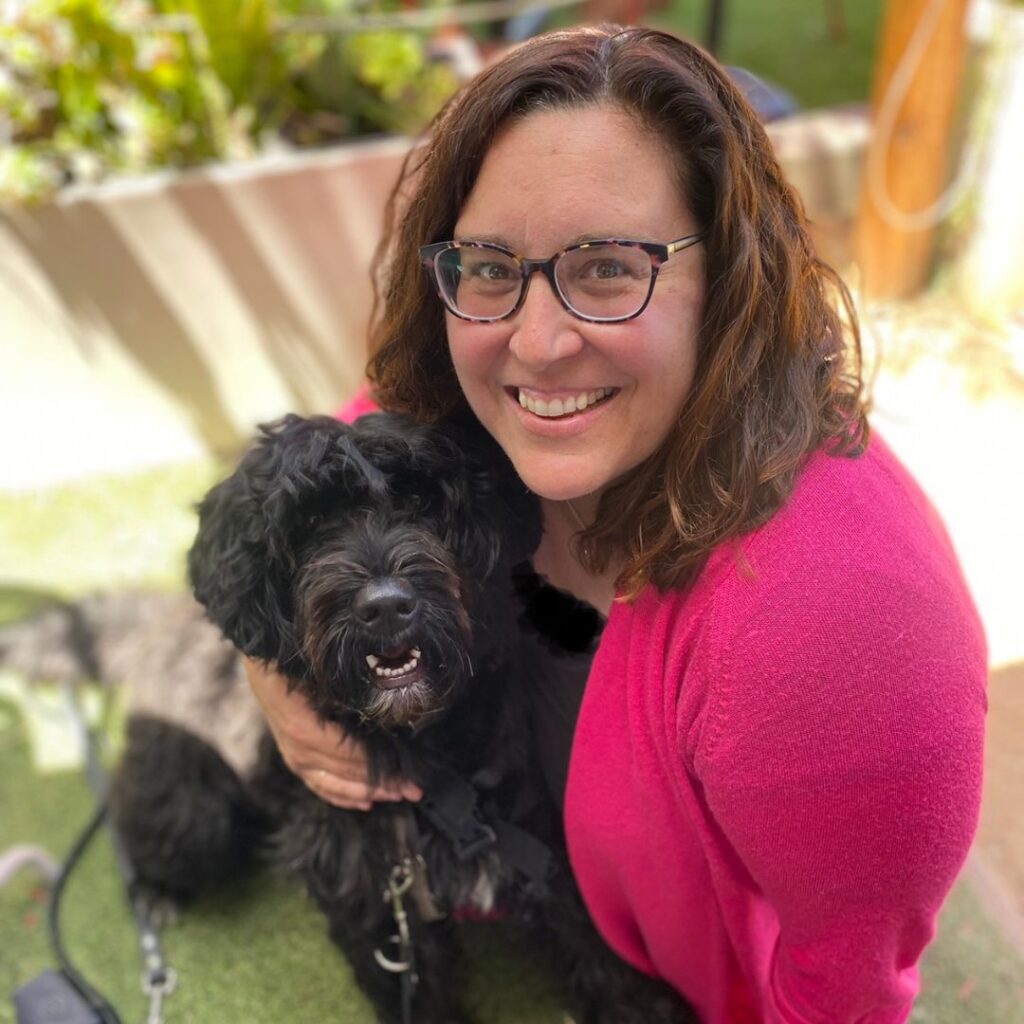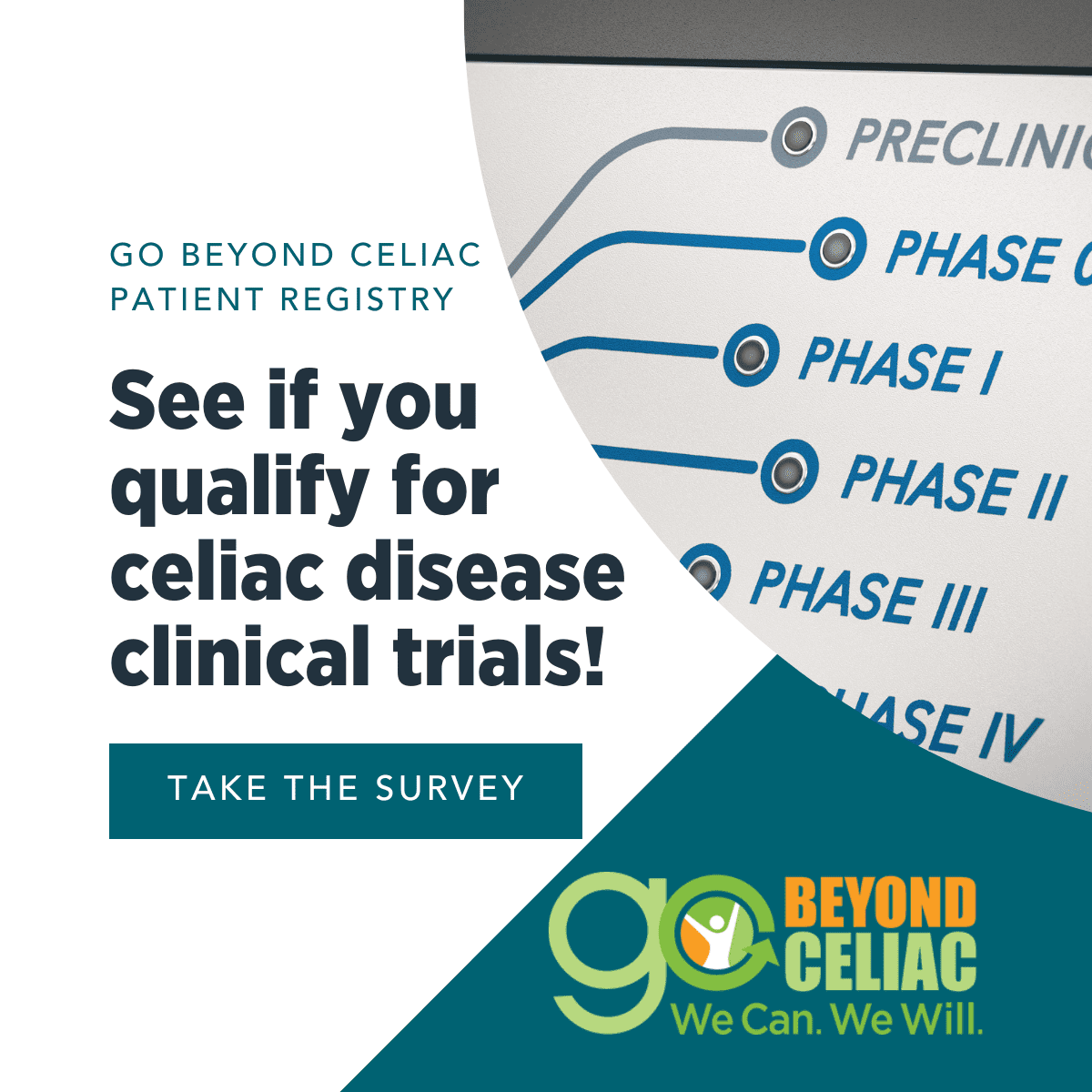Describe your life prior to diagnosis.
I lived a fairly normal life for most of my life, and didn’t have any concerns that I had celiac disease. I was plagued with regular sickness and bronchitis almost yearly. Doctors just chalked it up to allergies and asthma. I have some memories of having significant abdominal pain after eating a pasta dinner as a kid. As a toddler, my parents said I had a very bad bout with food poisoning that left me very sick for months, but after that, I was well.
How did you find out that you had celiac disease? Did you suspect it beforehand?
I was diagnosed in late 2017 after coughing for months. I could not shake the bronchitis that plagued me, and the doctors just said they thought I had acid reflux. I had tons of tests including a bronchoscope where they tested the fluid in my lungs. They still didn’t have an answer. A rheumatologist finally tested me for celiac disease, and it was positive.
Who made the diagnosis?
I was diagnosed by a rheumatologist who ran the blood and genetic tests on me. I have both the DQ8 and DQ2 genes. By the time the bloodwork came back, I had already been gluten-free for over a month, and I had seen so much improvement. My doctor said to do the endoscopy, I would have to go back on gluten, and I could not do that. I recently had a follow-up endoscopy and my intestines look very good.
How long did it take for you to get diagnosed since your first symptoms and what challenges did you face along the way?
My main complaints were this terrible coughing that persisted for the the better part of a year. I went to so many doctors, and had so many tests. I also had terrible anemia that they said corresponded to my heavy periods, but until I went to the rheumatologist as my last resort, nobody tested me for celiac disease. That visit was in October. I started seeing doctors in February and had tons of tests, including CT scans, bronchoscopy, and even a nasal scope to check my damaged vocal cords. Nobody tested me for celiac disease.
Do you believe anything could have sped up your diagnosis?
If the original doctors had run the blood tests on me, especially when they ran the panels to see if what the issue was with my anemia, I could have been saved months of suffering. I was so sick, I slept sitting up to help with the coughing. I was so sick, I didn’t feel well enough to prepare healthy meals, so I ate easy and quick meals like pizza or pasta fairly regularly. I was poisoning myself, and I didn’t know it.
I also look back and wonder if the issues I had earlier in my life were precursors to celiac disease. I had thyroid cancer earlier in my life, after Hashimoto’s, and I wonder if my thyroid disease was triggered by the untreated celiac disease. I would love to see automatic genetic testing and celiac disease panels for children so they can avoid more damage to their bodies.
Describe your experience living with celiac disease.
After I went gluten-free, I still kept getting sick. This happened every time I went out to eat. I also had issues with medication. My work required travel and the problems with eating out were really bad. I ended up taking all my food with me when I travel. If I went out with friends, I rarely would eat with them because I would get sick from cross-contact. It wasn’t worth the risk of missing out on the time with friends if I got sick. I heard about gluten-detection dogs in an episode of the Celiac Project podcast, and I started researching. I had a senior dog and I knew I wanted another dog, and I started to seriously think a gluten detection service dog may be an option. I couldn’t afford a fully-trained one, but an owner-trained one was an option. COVID gave me the time at home to start the process and I was very fortunate to get a puppy. I worked with a trainer over Zoom who taught me what to do. Suki, my gluten detection dog, now checks all my food, medicine, and personal care products for gluten. She travels with me everywhere, and I am so thankful to have her.
What would a cure mean for you?
A cure would mean eating out without worry. It would mean feeling well, no matter what, and really embracing life. It would also mean not talking about my dietary restrictions every time I want to go out with friends or travel for business. Freedom from all the decisions that are required when you have celiac disease would be such a blessing.
I would love to see awareness of celiac disease grow. It would be so wonderful if the kids who are diagnosed today would be greeted with acceptance, accommodation, and understanding. I want to see the jokes and ridicule disappear. It is my goal through my social media platforms to spread awareness of the disease and increase knowledge of what it takes for food to be safe for people with celiac disease.



